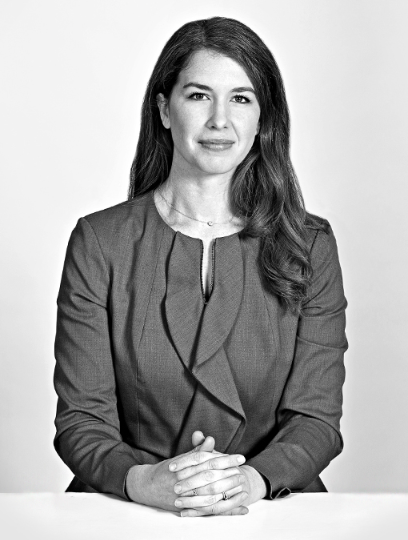Despite its significance, more than half of Canadians have overlooked or put off creating a will. It may be because they’re uncomfortable with the topic of their passing, they have misconceptions about how important a will is, or they’re simply not facing the fact that someday they will die.
Jennifer Butkus is a member of McKenzie Lake Lawyers’ Wills, Estates, and Trusts practice group. She advises clients in all aspects of estate planning and administration, including the preparation of wills, powers of attorney, and trusts. She says, “Creating a will is crucial. It serves as a cornerstone of proper estate planning and ensures that your intentions are carried out as you desire. There are many vitally important reasons to have a will.”
Protecting your loved ones
One of the most important reasons to create a will is to protect your loved ones. A will provides clarity and guidance during an emotionally challenging period. A well-drafted will allows you to designate beneficiaries of your assets to ensure that specific property or financial resources go to the individuals of your choosing.
A will can also provide significant protections for minor children. Butkus points out, “With a will, you can appoint a guardian, someone you trust to care for your minor children. This decision will allow you to make choices that reflect your values and preferences for their future. If you have minor children you can establish “trusts” for them which is very important, because if you’re under the age of 18, you cannot inherit money in any sizable amount.” A “trust” will determine when your children will receive their inheritance, and who will manage their inheritance for them until it is paid out.” You can also provide for people with disabilities to ensure they are looked after.
Directing asset distribution
Regardless of the size of your estate, a will empowers you to dictate how your assets will be distributed. Whether it’s real estate, investments, personal belongings, or sentimental items, a will enables you to specify who receives what. Butkus says, “With a will you can identify your beneficiaries and how they receive the assets.”
With a will, you also choose your executor. Butkus says, “You choose the person who is going to step into the role to administer your after-death affairs, including filing your taxes and distributing your assets to beneficiaries. You can also leave a legacy by including charitable giving in your will. It’s not only a wonderful benefit to donate to a charity of your choice but it also has positive tax implications by minimizing the taxes your estate will have to pay.”
Mitigating conflicts and legal challenges:
Having a will helps minimize the likelihood of disputes among family members or potential beneficiaries.
By clearly stating your intentions, you reduce the ambiguity that often leads to disagreements after your passing. Ambiguity or an absence of a will can create an environment that is ripe for conflicts, which causes a further financial burden and emotional strain on your loved ones.
Speeds up the process and reduces costs:
Having a legally valid will can expedite the probate process. Probate is a procedure to ask the court to either give a person the authority to act as the estate trustee, confirm the authority of a person named as the estate trustee in the deceased’s will and, formally approve that the deceased’s will is their valid last will.
Simplifying the probate process potentially reduces administrative expenses, the time it can take to settle your estate while also minimizing any probate taxes that are payable. Jennifer Butkus says, “This is where an experienced lawyer can help. A lawyer can advise you on certain strategies that can be used in estate planning to minimize taxes to keep more money in your estate.” Probate is charged at $15 per each $1,000 of the value of your assets over and above the first $50,000. Butkus adds, “Sometimes it’s not possible to avoid probate, but if your estate plan is structured properly, the process can be made as efficient as possible for your beneficiaries.”
Adapting to changing circumstances
In life, circumstances can change unexpectedly. Major life events such as marriage, divorce, the birth of children, changes in financial status, or acquiring additional assets should prompt a review of your will.
Butkus says, “It’s great to have a will in place, but you also must remember to update your will when your financial and life circumstances change. Only approximately half of Canadians have a will and many of those individuals forget to update it. They set it and forget it and don’t return to it down the road.”
What if you don’t have a will?
If you don’t have a will, there is a domino effect of issues. Firstly, nobody has the automatic authority to act as your estate trustee or executor without a court appointment. Butkus says, “Someone can be appointed to fill that role, but there’s also no direction from you as to where the assets of your estate should go. There is legislation that dictates who your heirs are but it’s not always who you would expect or who you would want your heirs to be.”
Nobody has the automatic authority to act in your interest. Without a will, a court will determine the distribution of your assets, possibly resulting with your assets ending up with unintended beneficiaries. A spouse would receive what is called a “preferential share”, which is the first $350,000 of value in your estate, and beyond that, everything else you have is divided between your spouse and surviving children as prescribed by law, which can be quite complicated.
Without a will there may be additional legal fees for probate services and probate taxes. Butkus says, “It will also result in some delay because until your executor has that probate certificate, their hands are tied in terms of what they can do to distribute your assets and move your estate forward.” The probate process could take months.
Blended families are very common now and a lot of the time we see people who may want to protect certain assets for their biological children while other assets are intended for their new spouse. Jennifer Butkus stresses, “If you don’t have a will, you don’t necessarily have any control over the distribution of your assets.” Common law spouses who are not designated beneficiaries of assets are not by law entitled to anything.
Contact a lawyer
Not creating a will today could cost you more in the future. Jennifer Butkus says, “At the end of the day, there is more estate litigation in Ontario. We’re seeing all kinds of challenges to wills for beneficiaries who think they should be more entitled to different aspects of the estate. Not having a will often creates significantly more expense for your estate than the cost of drafting a will in the first place.”
A will is not only a document of distribution it’s a reflection of your values and consideration for those you leave behind. Creating a will is a proactive and responsible step toward securing your legacy and safeguarding the future of your loved ones. It gives you the opportunity to exercise control over the distribution of your assets, protect your family, speed up the process, and minimize potential conflicts.
Consulting an experienced lawyer is crucially important. A lawyer can assist you in drafting a comprehensive will that aligns with your wishes and ensures your legacy according to your intentions while also providing strategies to minimize taxes and keep more financial resources within your estate.
To contact Jennifer Butkus, email [email protected] call (519) 672-5666 or visit: www.mckenzielake.com

This article was sponsored by McKenzie Lake Lawyers (Guelph), a 2023 GuelphToday Reader Favourite.
